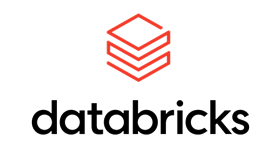In order to achieve their long-term goals, NHS bodies must adopt a modern data platform that enables advanced analytics for more targeted care and empowers patients by giving greater control over their own health data
The NHS data strategy represents a major step forward in the management and use of healthcare data in the UK. By setting standards for data collection, management, and sharing, the strategy aims to improve patient care, streamline operations, and drive innovation in healthcare. The potential benefit and opportunity of realising this strategy will have a large impact on tackling the waiting list backlog, addressing staffing shortages, and providing more joined-up care across the newly formed integrated care boards. In order to achieve these goals, it will be critical for NHS bodies to embrace a modern approach to data.
Sponsored by
However, many of the NHS bodies that will help deliver on this strategy still struggle to address reporting and basic analytical use cases, and have not been able to take full advantage of advances in artificial intelligence or machine learning. This is in part due to pressures on frontline staff, and a shortage of the skills required to deliver programmes of work. Another major challenge is the continued use of legacy data estates, which creates information that is siloed in disparate systems.
Embracing a modern approach to data
A modern data platform must enable advanced analytics for more targeted care, starting with identifying what patients and conditions are most appropriate for each care setting.
To advance care, NHS leaders need to embrace a modern platform, such as a Lakehouse, an open architecture that combines the best elements of data lakes (predictive analytics) and data warehouses (business intelligence). Lakehouses accommodate unstructured data like video and audio, enable streaming data for real-time analytics, offer data governance and quality assurance, and support both reporting and predictive analytics from a single source of truth. Organisations that do so will be able to meet patients where they are, improve the quality and consistency of care, and deliver a better experience for patients and providers alike.
The Databricks Lakehouse provides a single environment for data engineering, data science, and ML, allowing NHS organisations to easily collaborate and share insights across different teams and organisations in an open and secure manner. This makes it an ideal solution for addressing the key components of the NHS data strategy.
Matching ambition with action
One of the key goals of the NHS data strategy is to empower patients by giving them greater control over their own health data. This requires a secure and scalable platform for storing and processing personal identifiable information, and allowing patients to easily access and share their health data with healthcare providers, while also retaining control over their own data.
The strategy recognises the importance of improving the quality and consistency of health data. To achieve this goal, healthcare providers must focus on ensuring that their data is accurate, consistent, and up to date, which is critical for delivering high-quality patient care. They can easily access and analyse health data from a variety of sources, including electronic health records, wearables, and other IoT devices that will help enable data access and improve patient outcomes.
Underpinning all of the above is a need to protect patient privacy and ensure the security of health data, whilst NHS trusts must ensure data remains within the UK and is not locked into proprietary formats. Open standards are a key pillar to this requirement and force the technology sector to innovate to keep pace with the market, whilst opening up a wider talent pool.
By empowering patients, improving data quality, streamlining data access, driving innovation, ensuring privacy and security, and building a modern data infrastructure, the NHS can achieve its goals of improving patient care, streamlining operations, and driving innovation in healthcare.
Click here to find out more.
Or contact us at nhs@databricks.com
























